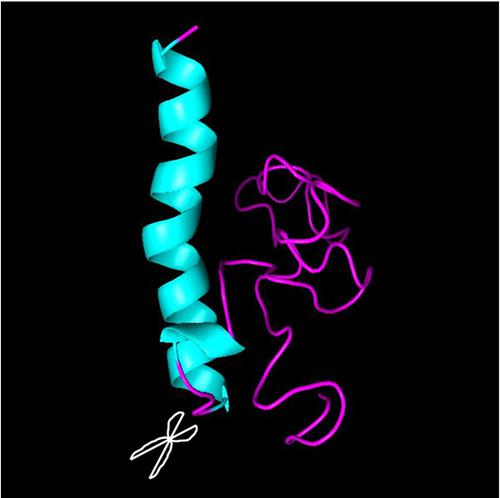当前位置:
X-MOL 学术
›
J. Integr. Plant Biol.
›
论文详情
Our official English website, www.x-mol.net, welcomes your
feedback! (Note: you will need to create a separate account there.)
The Brassicaceae‐specific secreted peptides, STMPs, function in plant growth and pathogen defense
Journal of Integrative Plant Biology ( IF 9.3 ) Pub Date : 2019-07-02 , DOI: 10.1111/jipb.12817 Zipeng Yu 1 , Yang Xu 1, 2 , Lifei Zhu 1 , Lei Zhang 1 , Lin Liu 1 , Di Zhang 1 , Dandan Li 1 , Changai Wu 1 , Jinguang Huang 1 , Guodong Yang 1 , Kang Yan 1 , Shizhong Zhang 1 , Chengchao Zheng 1
Journal of Integrative Plant Biology ( IF 9.3 ) Pub Date : 2019-07-02 , DOI: 10.1111/jipb.12817 Zipeng Yu 1 , Yang Xu 1, 2 , Lifei Zhu 1 , Lei Zhang 1 , Lin Liu 1 , Di Zhang 1 , Dandan Li 1 , Changai Wu 1 , Jinguang Huang 1 , Guodong Yang 1 , Kang Yan 1 , Shizhong Zhang 1 , Chengchao Zheng 1
Affiliation

|
Low molecular weight secreted peptides have recently been shown to affect multiple aspects of plant growth, development, and defense responses. Here, we performed stepwise BLAST filtering to identify unannotated peptides from the Arabidopsis thaliana protein database and uncovered a novel secreted peptide family, secreted transmembrane peptides (STMPs). These low molecular weight peptides, which consist of an N‐terminal signal peptide and a transmembrane domain, were primarily localized to extracellular compartments but were also detected in the endomembrane system of the secretory pathway, including the endoplasmic reticulum and Golgi. Comprehensive bioinformatics analysis identified 10 STMP family members that are specific to the Brassicaceae family. Brassicaceae plants showed dramatically inhibited root growth upon exposure to chemically synthesized STMP1 and STMP2. Arabidopsis overexpressing STMP1, 2, 4, 6, or 10 exhibited severely arrested growth, suggesting that STMPs are involved in regulating plant growth and development. In addition, in vitro bioassays demonstrated that STMP1, STMP2, and STMP10 have antibacterial effects against Pseudomonas syringae pv. tomato DC3000, Ralstonia solanacearum, Bacillus subtilis, and Agrobacterium tumefaciens, demonstrating that STMPs are antimicrobial peptides. These findings suggest that STMP family members play important roles in various developmental events and pathogen defense responses in Brassicaceae plants.
中文翻译:

十字花科特有的分泌肽,STMP在植物生长和病原体防御中起作用
低分子量分泌肽最近已显示出影响植物生长,发育和防御反应的多个方面。在这里,我们进行了逐步的BLAST过滤,以鉴定拟南芥中未注释的肽蛋白质数据库,并发现了一个新的分泌肽家族,即分泌的跨膜肽(STMPs)。这些由N端信号肽和跨膜结构域组成的低分子量肽主要位于细胞外区室,但在分泌途径的内膜系统(包括内质网和高尔基体)中也被检测到。全面的生物信息学分析确定了十字花科的10个STMP家族成员。十字花科植物暴露于化学合成的STMP1和STMP2后,显示出显着抑制根生长的作用。拟南芥过表达STMP1,2,4,6,或10表现出严重的生长停滞,表明STMP参与调节植物的生长和发育。此外,体外生物测定表明,STMP1,STMP2和STMP10对丁香假单胞菌pv具有抗菌作用。番茄DC3000,青枯雷尔氏菌,枯草芽孢杆菌和根癌农杆菌,证明STMP是抗菌肽。这些发现表明,STMP家族成员在十字花科植物的各种发育事件和病原体防御反应中起着重要作用。
更新日期:2019-07-02
中文翻译:

十字花科特有的分泌肽,STMP在植物生长和病原体防御中起作用
低分子量分泌肽最近已显示出影响植物生长,发育和防御反应的多个方面。在这里,我们进行了逐步的BLAST过滤,以鉴定拟南芥中未注释的肽蛋白质数据库,并发现了一个新的分泌肽家族,即分泌的跨膜肽(STMPs)。这些由N端信号肽和跨膜结构域组成的低分子量肽主要位于细胞外区室,但在分泌途径的内膜系统(包括内质网和高尔基体)中也被检测到。全面的生物信息学分析确定了十字花科的10个STMP家族成员。十字花科植物暴露于化学合成的STMP1和STMP2后,显示出显着抑制根生长的作用。拟南芥过表达STMP1,2,4,6,或10表现出严重的生长停滞,表明STMP参与调节植物的生长和发育。此外,体外生物测定表明,STMP1,STMP2和STMP10对丁香假单胞菌pv具有抗菌作用。番茄DC3000,青枯雷尔氏菌,枯草芽孢杆菌和根癌农杆菌,证明STMP是抗菌肽。这些发现表明,STMP家族成员在十字花科植物的各种发育事件和病原体防御反应中起着重要作用。











































 京公网安备 11010802027423号
京公网安备 11010802027423号